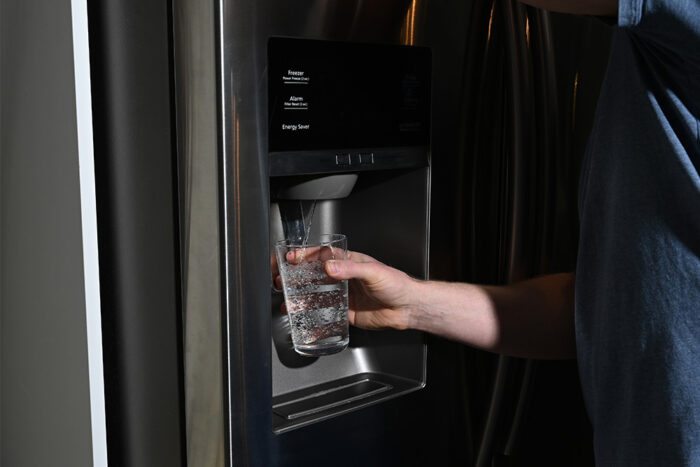A home away from the hustle and bustle of city life is a dream come true for many families. But, if you’re considering a move to the country or have recently purchased a house in a rural area, you could be in for a few surprises.
One of the most significant differences between city and country living is where your home’s water comes from. In many rural homes, you’ll have a private well rather than water supplied and treated by a municipality. Well water may look, taste, and smell differently than water from a city home. It may also create unwanted effects on bathing, housecleaning, and laundry.
There are more than 15 million homes with well water in the United States, and it is generally safe to use and consume. However, there are some things you should know about owning a home with a private well that will reduce health and safety risks while making sure your family has quality water that makes life easy and enjoyable.
When you own a home with a private well, the safety and quality of the water is your responsibility. Well water almost always requires some softening and filtration to make it ideal for drinking, cooking, and cleaning. Here are several other things you should know …
1. Well Water Comes Straight from the Ground
Well water is groundwater that is untreated. Well drillers drill down to the aquifer, which is an underground layer of permeable rock containing water. Then, a pump system is installed to carry the water up from the ground and into your home.
It isn’t hard to find drinkable groundwater. But, since groundwater is essentially rain that has moved through the soil and into an aquifer, it can absorb a lot of other things along the way. There’s much more in your well water than H2O.
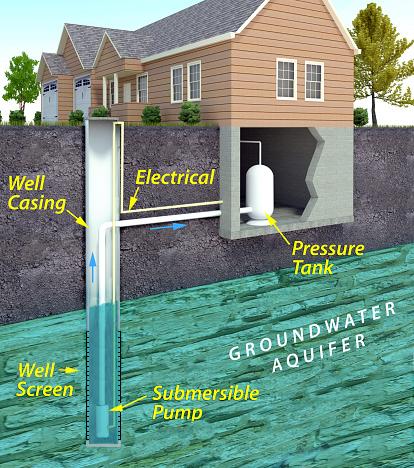
How a private residence accesses an aquifer (Courtesy EPA)
2. Well Water is Usually Hard
Because water is an incredible solvent, groundwater will dissolve organic matter, including minerals found in the soil and rocks beneath the Earth’s surface. The minerals calcium and magnesium are what make well water hard.
Unless you live in a region where there is naturally less of these minerals, a home with a private well will likely require a water softener. If you’re building a home in the country without access to municipal water, a softening system should be installed. If you purchase an existing home, it may already have a water softener. Keep in mind, the equipment may need to be updated to efficiently and effectively treat your well water.
Discover signs your water softener needs to be replaced, or consider having a free water quality analysis to find out how to fix problems with your well water. If you’re unfamiliar with water treatment equipment, you can learn more about how water softeners work on our blog.
3. Well Water Can be Smelly and Cause Staining
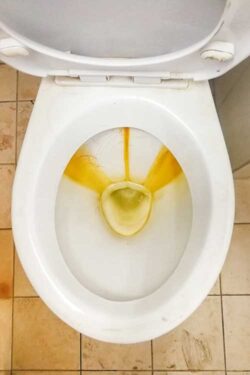
When moving into an old farmhouse, you may notice stains on fixtures and in sinks, tubs, and toilets. Some of this could be lime scale due to hardness, however, the most frustrating stains from well water come from high iron content.
Iron is not a safety concern, but it can be a major nuisance, changing the taste of your water and causing unsightly orange stains that are difficult to remove. While there are tips and tricks for removing iron stains, the only way to get rid of them for good is to install special iron filtration systems.
Water-Right offers the Impression Series® Air Filters and Impression Plus Series® Air Filters, which oxidize dissolved iron so it can be filtered out of your water. This water treatment equipment can also filter out sulfur, which is another common well water problem. Sulfur is usually to blame for water that smells like rotten eggs.
In some cases, special water treatment media, such as Crystal-Right™, can be used to remove iron and reduce sulfur odor from well water. This specialized material can also soften water at the same time, reducing the number of treatment equipment systems needed for your home. You’ll need a local water treatment expert to evaluate your situation and recommend the best solution. Find out about other reasons why your water smells.
4. Well Water Can Become Contaminated
Most common problems with well water are simply aesthetics, but there can also be more serious concerns. While groundwater found in private wells is less susceptible to pollution than surface water, it is certainly possible for wells to become contaminated.
Naturally occurring contaminants include elements such as uranium, radon, and arsenic, which are dissolved in groundwater as it moves through soil and rock. These chemicals are found at different levels in different regions of the United States. Your local water treatment expert can help you understand risks specific to your part of the country.
You can also check out our Regional Water Roadmap and articles in the Regional Water Problems series to research typical concerns:
- Water quality problems in the Northeast
- Water quality problems in the Great Lakes states
- Water quality problems in the Midwest/Plains
- Water quality problems in the Southeast
- Water quality problems in Mountain states
- Water quality problems on the West Coast
Contamination from agricultural runoff is one of the most common and problematic health and safety issues. Septic tanks located too close to a private well can also cause contamination. One of the biggest concerns is nitrate contamination. At elevated levels, nitrates pose a health risk to pregnant mothers and young children.
The EPA has more about well water contaminants and their potential impact.
The best way to get peace of mind about potential well water contaminants is to have a reverse osmosis (R.O.) drinking water system installed in your home. An R.O. system is a special form of water filtration that greatly reduces trace elements, heavy metals, and bacteria, producing great-tasting water for drinking and cooking – right from the kitchen sink!
Find out more about the benefits of reverse osmosis water and how an R.O. system works.
5. Well Water Must be Tested at Least Once a Year
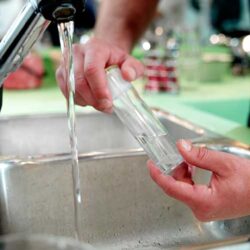
The quality of well water is constantly changing, and the best way to protect your family is to have your well tested. While it isn’t required by the government, it’s an essential step to keep your family safe. The EPA recommends that you test your well once a year for E. coli and coliform bacteria at the absolute minimum. You should also test your water for radon and arsenic, minerals such as iron, manganese, nitrate levels, and any volatile organic compounds to ensure your home’s water is safe.
If you do notice a change in water quality, (appearance, odor, taste, etc.) it’s a good idea to have your well tested, even if it hasn’t been a year since the last test.
There are at-home, out-of-the-box tests you can purchase and perform yourself. When you go this route, it is important to read what exactly the kit is testing for – not all tests are created equal.
All Water-Right, Evolve, and WaterCare professionals have access to our state-certified Clean Water Testing laboratory. They can collect samples from your well, send them to our lab, and provide you with reports on water quality. When your water is examined by Clean Water Testing, you get the peace of mind knowing your water is professionally tested by a state-certified lab. You’ll also have the added convenience and confidence to review results with a professional water treatment expert.
Buying a Home with a Private Well
Knowing area water concerns can help you take proactive measure towards protecting your well. Find out if there are known water issues in the area and if there are any contamination concerns due to runoff from agriculture or nearby industrial activity.
Before moving into a house with a well, learn about the well’s history, condition, and capacity by asking the current owner for a history log. This will help you identify what has been done to the well in the past, how much it holds, and what the flow rate is to see if it will meet your household’s needs. It’s also a good idea to ask what the home’s seller is currently doing to treat the water.
Read about specific signs of problems with private wells and continue to educate yourself.
Groundwater quality differs greatly and changes frequently. Your home may have completely different water problems than your neighbor’s down the road. That’s why the advice of a trusted, local water treatment expert can be so valuable.
Having a private well shouldn’t discourage you from moving into that dream house in the country. You simply need the right partner to help you make sure your home’s water quality is right for your family’s needs.
Find the right contractor for you.
Recent Homeowner Resources

Are You Drinking Contaminated Water? New Rules Help Homeowners Identify Lead Risks
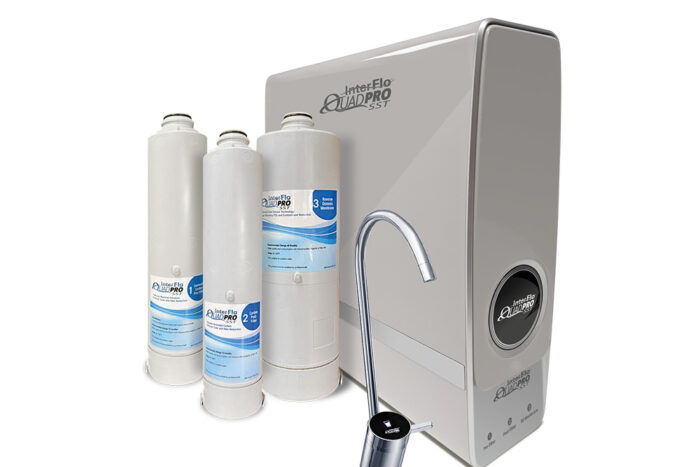
Introducing InterFlo® QuadPro SST!
